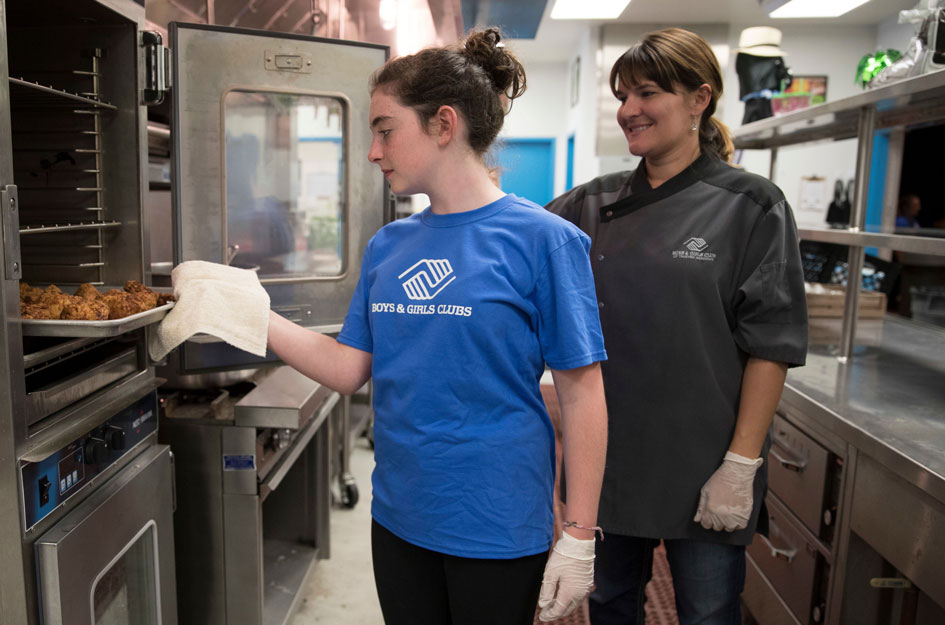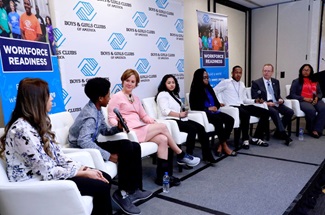This article was updated on 8/12/2019.
Last week, I joined the Boys & Girls Clubs of America at their Great Think convening in Washington D.C. The focus was "Workforce Readiness" and how leaders in both the public and private sectors can help young people face the challenges of career readiness. According to a 2015 Bridgespan report, there are plenty of opportunities for young workers. In fact recent research posits that companies will need to fill a gap of nearly 6 million entry-level positions by 2020. The jobs are there—if young people are ready.
So what does that readiness look like? It's a combination of hard skills such as being up on the latest technology, and soft skills, such as personal responsibility and working with others. And to me, one of the most important foundational skills is financial literacy. Because financial literacy—from understanding budgeting and spending to wisely managing credit and debt—can not only help a young person get a job, but also keep a job once they have it.
Let's take debt management for example. Almost half of employers check the credit history of potential employees, viewing it as a risk factor for theft, embezzlement and low productivity. Whether you agree or disagree with credit history as a qualifier for employment, the reality is employers are increasingly using such financial measures to make hiring decisions.
It's also well documented that financial issues can impact an individual's ability to do well in a job. People with high financial stress are twice as likely to report poor overall health and three times as likely to experience mental health issues. Consequently, mental health days cost businesses $53 billion annually, and 78 percent of employers believe their employees are less productive at work when worried about personal financial issues. On the employee side, 76 percent of Americans are stressed about money, leading to absences from work and distractions when there.
I often talk about how a lack of financial knowledge impacts a person's personal wellbeing. For example, carrying high-interest debt costs Americans thousands in unnecessary payments, severely impacting our ability to save for retirement. But, clearly, financial illiteracy also presents a very real obstacle to joining the workforce, maintaining productivity and advancing in one’s job.
What are some solutions to these problems? Here are two that I believe should be top priority:
- Young adults should be learning about financial literacy well before they receive their first paycheck. According to the Council for Economic Education, only 17 states currently require high school students to take a course in personal finance. Financial education must be mandated as part of national education standards. We need high schools nationwide to provide a stand-alone financial literacy program, especially as teens are on the cusp of joining the workforce or attending college and are therefore making hugely consequential decisions about student debt and more.
- To supplement national education mandates, we must also increase funding and support for high-quality after-school programming. Our partnership with Boys & Girls Clubs of America on Money Matters demonstrates the impact an evidence-based, after-school financial literacy program can have. Money Matters offers a five-module curriculum covering budgeting, saving and investing, managing debt, and planning for college for youth and teens. Since the program began, we’ve reached 1 million kids, providing education, leadership and scholarship opportunities that have resulted in significant improvements for program participants in financial knowledge and behavior. For instance, those who completed the program were more likely to apply for college as well as for scholarships.
To top it off, Money Matters is one of the fastest growing programs at Boys & Girls Clubs of America for the past 15 years, indicating this type of instruction is sorely needed and wanted among youth.
Why should employers, corporate leaders, parents and educators get behind these financial literacy programs? Because the benefits go beyond money to the very core of what makes an individual ready and able to successfully navigate the workforce and pursue a career.
People who understand budgeting, debt and risk management will have a better understanding of the ups and downs of a business, making them more engaged in the company’s goals. Having an understanding of planning, saving and spending will help ensure an employee's life outside of work is financially stable, allowing them to be more focused and more committed. And the personal skills such as self-regulation and impulse control necessary for good money management can have a positive impact on the development of a young adult beyond financial decisions.
To me, financial literacy is important not only for career readiness but also for life readiness. Helping young people establish this crucial foundation before they enter the workforce will have a far-reaching effect on their futures—as well as our own.
As taken from Carrie Schwab-Pomerantz’s Linked In
Read the Boys & Girls Clubs of America’s white paper, Building Economic Opportunity: Youth Workforce Readiness, to learn more about how Clubs are developing solutions to close the workforce skills gap for youth and get action steps on how to help in your local community.





